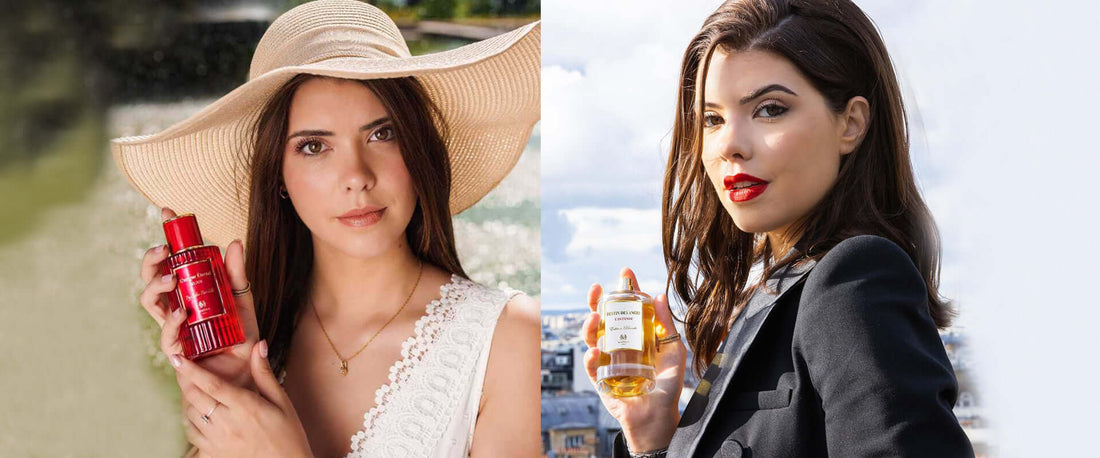
Fragrance possesses a unique ability to evoke emotions, memories, and sensations, making it an indispensable part of our personal style and identity. Yet, amidst the allure of perfumery, many individuals unknowingly make common mistakes that compromise the impact of their chosen scent. We'll explore the dos and don'ts of perfume application, unraveling the subtle intricacies that can transform a fragrance from forgettable to unforgettable.
From selecting the perfect scent to mastering the art of application, we'll delve into the essential practices that ensure your fragrance leaves a lasting impression. Whether you're a seasoned connoisseur or a curious novice, this guide aims to empower you with the knowledge to craft a scent signature that reflects your unique personality and style, elevating your fragrance game to new heights.
Dos
A. Choosing the right fragranceUnderstanding fragrance families: Before purchasing a perfume, take the time to familiarize yourself with the various fragrance families such as floral, oriental, woody, and citrus. Understanding these categories will help you narrow down your options and select a scent profile that resonates with your preferences and personality.
Considering occasion and season: Tailor your fragrance choice to the specific occasion and season. Opt for light, fresh scents during the warmer months and reserve richer, more intense fragrances for colder weather or evening events. Additionally, consider the formality of the occasion, selecting a subtle scent for daytime wear and a more bold fragrance for evening affairs.
B. Applying perfume properly
Spraying on pulse points: Apply perfume to pulse points such as the wrists, neck, behind the ears, and inner elbows. These areas emit heat, which helps to diffuse the fragrance, amplifying its scent throughout the day. Avoid rubbing your wrists together after application, as this can alter the fragrance's composition and diminish its longevity.
Layering fragrance with complementary products: Enhance the longevity and complexity of your fragrance by layering it with complementary products such as scented body lotions or shower gels. Opt for products that contain similar scent notes to your perfume, creating a harmonious fragrance experience that lasts from morning to night.
C. Storing perfume correctly
Keeping away from light and heat: Protect your perfume from exposure to light and heat, as these factors can degrade the fragrance and alter its scent over time. Store your perfume in a cool, dark place such as a drawer or cabinet away from direct sunlight and heat sources like radiators or window sills.
Using original packaging or opaque containers: Preserve the integrity of your perfume by storing it in its original packaging or opaque containers. Transparent bottles may allow light to penetrate, accelerating the fragrance's deterioration. If the original packaging is not available, consider transferring the perfume to an opaque container to shield it from light exposure.
Don'ts
A. Overwhelming applicationAvoiding excessive sprays: Resist the temptation to drench yourself in perfume. Overapplication can overwhelm your senses and those around you, leading to discomfort rather than admiration. Instead, opt for a conservative approach, starting with a small amount and gradually building up if necessary.
Not reapplying too frequently: While it's natural for fragrances to fade over time, resist the urge to continuously reapply throughout the day. Doing so can lead to olfactory fatigue, where your nose becomes desensitized to the scent, making it difficult for you to gauge its intensity. Instead, consider the longevity of your perfume and reapply only when necessary.
B. Mixing too many scents
Using conflicting fragrances: Avoid the temptation to mix multiple perfumes with conflicting scent profiles. This can create a cacophony of smells that clash rather than harmonize, resulting in an unpleasant olfactory experience. Stick to one signature scent at a time to maintain coherence and elegance.
Combining with strongly scented products: Be cautious when layering your fragrance with other strongly scented products such as body lotions, deodorants, or hair products. These products may contain fragrances that compete with or overpower your perfume, disrupting its intended aroma. If you do choose to layer scents, opt for unscented or lightly scented products to avoid overwhelming your chosen fragrance.
C. Ignoring body chemistry
Testing on skin before purchasing: Never skip the step of testing a perfume on your skin before making a purchase. Perfume interacts differently with each individual's body chemistry, resulting in subtle variations in scent. What smells delightful on a test strip may smell entirely different on your skin. Take the time to wear the fragrance for several hours to assess how it evolves and whether it complements your natural scent.
Not adjusting fragrance according to skin type: Recognize that your skin type can influence how a fragrance performs. Oily skin tends to hold onto scents longer, while dry skin may cause fragrances to dissipate more quickly. Adjust your application technique and the concentration of your perfume accordingly to achieve optimal longevity and projection.
Common Mistakes
A. Applying directly to clothes: Spraying perfume directly onto clothes can lead to staining and alter the scent. Instead, focus on applying perfume to your skin, particularly on pulse points, where it can naturally diffuse.B. Rubbing wrists together after application: Rubbing wrists together can degrade the fragrance by generating heat, causing it to fade more quickly. Allow the perfume to dry naturally on your skin after application to preserve its integrity.
Conclusion
Mastering perfume application is about more than just choosing a scent—it's an art form. By following the dos and avoiding the don'ts outlined here, you can elevate your fragrance experience. Remember to choose fragrances that suit both the occasion and the season, applying them with precision to pulse points for optimal diffusion.Proper storage and consideration of your body chemistry are also crucial factors in maintaining the integrity of your perfume. Finally, take the time to savor the process of applying perfume, allowing yourself to fully appreciate the sensory experience it provides.
With these tips in mind, you can confidently create a scent signature that reflects your unique personality and style, leaving a lasting impression wherever you go.

